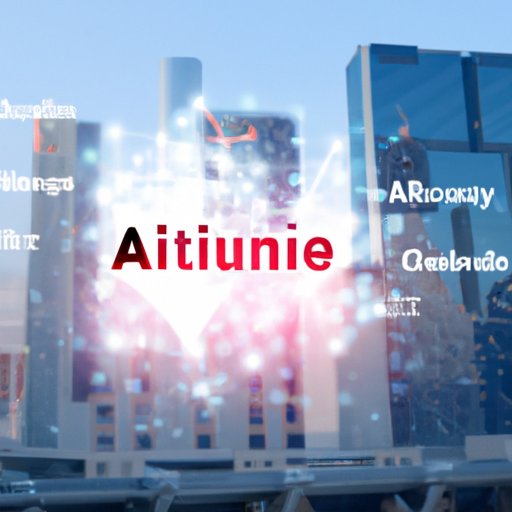Introduction
Artificial intelligence (AI) is a branch of computer science that focuses on the development of machines and software capable of performing tasks that traditionally require human intelligence. With advances in technology, AI is becoming increasingly prevalent in our lives, from self-driving cars to virtual assistants like Siri. But what are the potential benefits of AI for humanity? In this article, we will explore how AI can help humanity by automating tedious and dangerous tasks, enhancing medical diagnosis, improving natural language processing, facilitating personalized education, and developing smarter cities and infrastructure.

Automating Tedious and Dangerous Tasks
One way AI can help humanity is by automating tedious and dangerous tasks. AI-enabled robots can be used to perform tasks that are too difficult, time-consuming, or dangerous for humans. For example, robots can be used in hazardous environments such as nuclear power plants, where they can operate with greater precision and safety than humans. AI-enabled drones can also be used for surveillance, search and rescue operations, and other tasks that would otherwise be too dangerous or impractical for humans.
In addition, AI-powered robots can be used to automate mundane tasks such as assembly line work and data entry. This can free up human workers to focus on more creative and challenging tasks. Automation can also help reduce costs and increase efficiency, which can benefit businesses and consumers alike.
Enhancing Medical Diagnosis
Another way AI can help humanity is by enhancing medical diagnosis. AI-enabled systems can be used to analyze large amounts of medical data, such as patient records, medical images, and genetic information. This can help doctors identify diseases more quickly and accurately, leading to better outcomes for patients. AI-based systems can also help detect medical errors and provide real-time feedback to healthcare providers.
AI-powered systems can also be used to develop treatments for diseases based on a patient’s individual needs. This can help reduce the cost and time associated with finding the right treatment for a particular condition. In addition, AI can be used to monitor patients’ health and provide personalized recommendations for lifestyle changes and treatments.
Improving Natural Language Processing
AI can also help improve natural language processing (NLP). NLP is the ability of computers to understand and interact with humans using natural language. AI-based systems can be used to interpret human speech and text and respond appropriately. This can help improve customer service, facilitate communication between people speaking different languages, and provide a more natural user experience.
In addition, AI-based systems can be used to generate content, such as news articles and blog posts. This can help reduce the amount of time it takes to create content, allowing writers and editors to focus on more complex tasks. AI-based systems can also be used to moderate user-generated content, helping to keep online platforms safe and civil.
Facilitating Personalized Education
AI can also help facilitate personalized education. AI-based tutoring systems can be used to provide customized lesson plans and tailored feedback to students. This can help students learn more effectively, as they can receive guidance and support tailored to their individual needs.
In addition, AI-assisted learning systems can be used to track student progress and provide teachers with valuable insights into how students are engaging with the material. This can help teachers adjust their teaching methods to better meet the needs of their students.
Developing Smarter Cities and Infrastructure
Finally, AI can help develop smarter cities and infrastructure. AI-enabled systems can be used to optimize traffic flows, manage energy use, and monitor air quality. These systems can also be used to help reduce crime and improve public safety. In addition, AI can be used to improve public services, such as waste management and water delivery.
AI-powered systems can also be used to improve disaster response. AI-enabled sensors can be used to detect disasters such as floods, earthquakes, and wildfires, and alert authorities so they can take appropriate action.
Conclusion
In conclusion, AI can help humanity in a variety of ways, from automating tedious and dangerous tasks to enhancing medical diagnosis and developing smarter cities and infrastructure. AI-enabled systems can make life easier and safer for humans, while also helping businesses save money and improve efficiency. As AI continues to advance, we can expect to see even more applications of AI in the future.
Overall, AI has the potential to revolutionize how we live, work, and interact with each other. By leveraging AI, we can create a better and brighter future for humanity.
(Note: Is this article not meeting your expectations? Do you have knowledge or insights to share? Unlock new opportunities and expand your reach by joining our authors team. Click Registration to join us and share your expertise with our readers.)
